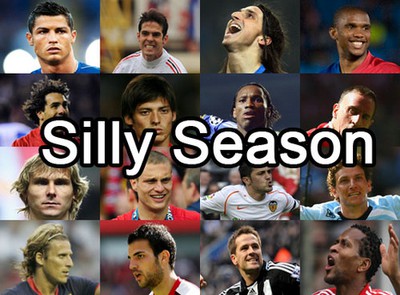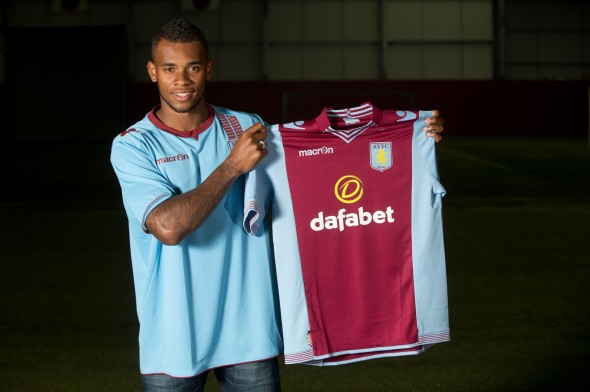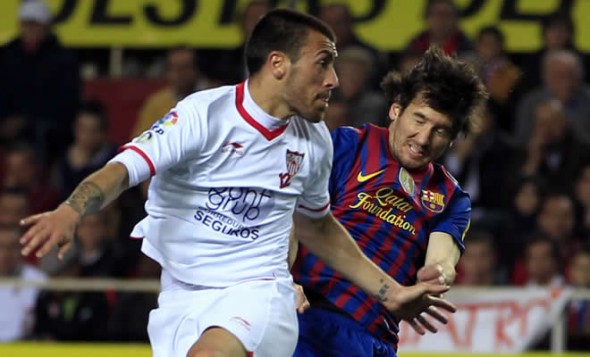
“Silly season,” as it’s commonly referred to, drives fans absolutely nuts.
The knock-on effect of a total lack of football to watch and read about leads to endless, often frivolous stories and tales of potential transfer news. Spectators are addicted, hanging off every word: Who will your club sign, who’s landed a bargain and who’s blown their budget?
The intrigue is palpable, but it’s often rewarded with the same old stories that tend to crop up every year. Out of favour Englishmen on the books of Tottenham is an easy one, while Aston Villa’s best player is usually linked to a club placed higher in the table.
But far removed from the traditional slog of recycled names, usual suspects and lazy transfer links, the 2013 summer transfer window has been a veritable stage for surprise and ingenuity.
Yes, Tom Huddlestone and Stewart Downing have been linked with new clubs as usual, but they merely represent a drop in a vast ocean of opportunity and chance.
It takes a truly committed football watcher to know who Nicklas Helenius, Charalampos Mavrias, Dwight Gayle and Leondro Bacuna are, and it’s names such as these that have dominated the opening salvos of the transfer merry-go-round.

Aston Villa and Norwich have both recruited six new players, Swansea and Fulham have four under their belts while Sunderland are approaching an astonishing nine.
The common factor across these clubs’ business models is that very, very few of the new faces are established Premier League players—the transfers we are used to seeing and hearing about.
Be it technology, following the lead of others or just plain luck, clubs are finally expanding their horizons and escaping the inflated fees and big wage packets established stars offer.
The business plan is extremely sensible, and while that’s the chief concern of managers and chairmen, a side-effect of the policy is an extremely exciting summer.
National newspapers have essentially given up guessing who Paul Lambert’s Villa are targeting—there’s simply no point in guessing—and he’s raided Spain, Denmark, Netherlands, Poland and the lower leagues of England in the past two seasons.
Paolo Di Canio, too, is impressing with his scouting range; He’s signed several under-the-radar talents with a lot to prove, while unearthing a few bargain deals in Gino Peruzzi and Emannuele Giaccherini.

It’s the best policy to take if you’re an underperforming club who needs to rescale the heights, and the trend of unearthing true gems—not hugely hyped players for big fees, as some do—is catching on.
What has sparked the change?
The globalisation of football has changed many of Europe’s top leagues over the past few seasons, but what’s really kicked the revolution into gear is the rise of the more modern football managers.
There are no up-and-coming managers like Roy Hodgson. Rather than take on a grandfatherly persona, they have fight, character or immense tactical ability and knowledge.
Lambert, Andre Villas-Boas, Roberto Martinez and Mauricio Pochettino are all tactically aware, flexible and clever. Di Canio, along with Steve Clarke, brings fire and passion.
Managers know they can go out, scour the world and find the exact type of player they need. There are enough out there, among the hundreds of professional leagues all over the globe, to specify every possible need. If no one fits the bill, a preseason of intense training can reform a player who has great natural potential.
Martin O’Neill has always been renowned as a great man-manager, but in the transfer market he is far from proficient. He likes to stick to Premier League-proven, determined players who fit the mental mould of his squad.
At times, it appeared he favoured a driven, dedicated squad in the same, limited formation over those who can truly change the playing style.
Where O’Neill bought Stephen Warnock at Villa to fit the theme of his side (for a hefty ~£8 million sum), Lambert has found Antonio Luna—on loan at Mallorca from Sevilla—to complement Matthew Lowton from the left for a fraction of that price.

Luna is a great tactical fit for the side, and provided he’s not a truly awful dressing room presence, the deal is a win-win. Warnock is English and his mentality fit his squad’s—that’s really all MON considered when brokering the deal.
The move away from “the usual suspects” can only be a good thing, whether you’re a fan, a prospective player, a manager or a chairman.
Vastly increased scouting networks have lead to hyperbolic interest in potential moves for the likes of Leroy Fer and Kevin Strootman, yet Scott Parker’s future has barely entered conversation.
Long may that continue.









